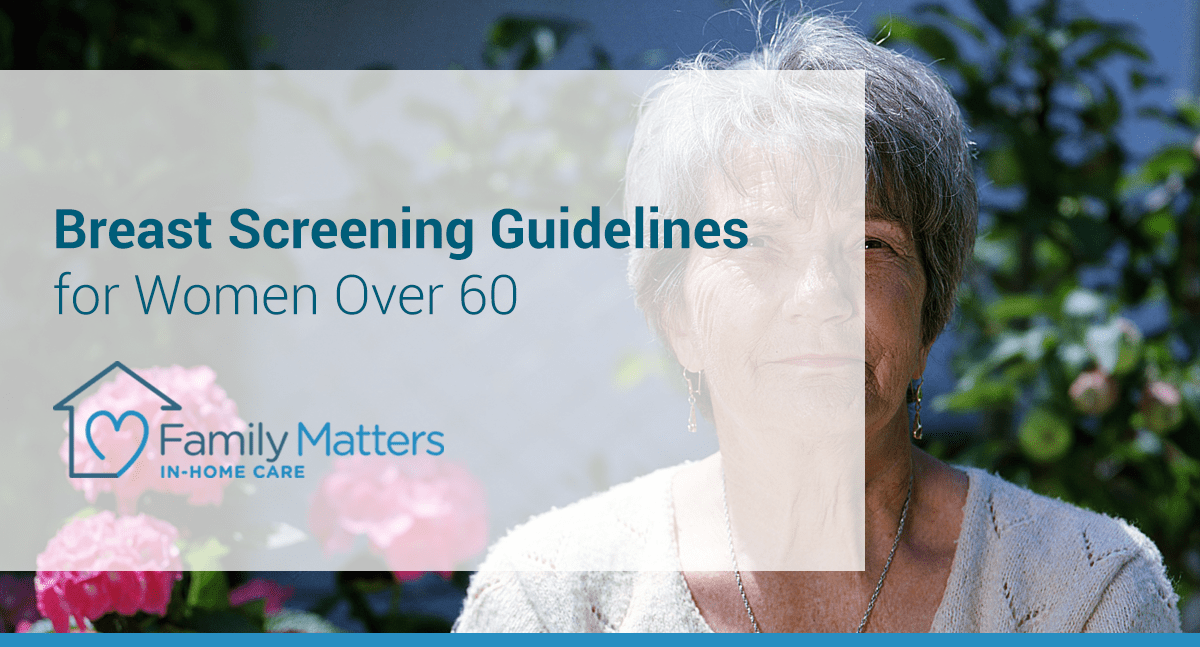
Breast Screening Guidelines for Women Over 60
October is breast cancer awareness month and a reminder that all women need to be well aware of the breast cancer screening guidelines for their age. Recommendations for mammogram frequency change according to the age of the woman and there is general debate about frequency for women of all ages. One thing that clinicians do agree on is that senior women certainly need to have mammograms, but at different intervals than women at younger ages. Here is the important general information that senior women need to know about breast health and screening guidelines.
A recent article in the medical journal Clinical Interventions in Aging discussed the statistics and recommendations for screening mammography for women over the age of 60. According to the authors, the general recommendation is that older women, up to the age of 69, have a mammogram if they have a life expectancy of at least 10 years. For women older than that there is not incontrovertible proof of the benefits. According to the article:
“While the balance of benefits versus harm (false positives) may be favorable for women up to 69 years of age and perhaps even up to 74 years of age with biennial screening, there is little evidence to support annual screening in older populations.”
The reasons is, according to the article, that mammograms have shown to be effective in reducing mortality rates from breast cancer in women aged 50 to 74 years old, but not in those aged 75 or older.
There is good reason for older women to pay attention to the debate over mammogram recommendations and discuss the best approach with their physicians. In the US:
- Breast cancer is responsible for most new cases of cancer among women: an estimated 29% of new cancer cases and 14% of cancer deaths in 2014.
- Approximately 41% of all incident breast cancers and 57% of all breast cancer deaths occur among women aged 65 years and older.
- Screening mammography, the only population-based method for the early detection of breast cancer, has been shown to be effective in reducing breast cancer mortality in women aged 50–74 years.
The latest guidelines recommend mammograms every other year for women aged 66 to 74 years of age. The American Cancer Society recommends the cancer screenings every 2 years for women ages 55 and older. The U.S. Preventive Services Task Force agrees and adds a bit more detail, recommending biennial screening mammography for women aged 50 to 74.
As yet there are no updated recommendations for women aged 75 and older. However, the National Cancer Institute has launched a new screening initiative to try to clarify recommendations.
In addition to mammograms, women should have a clinical breast exam conducted by their physician. The American Congress of Obstetricians and Gynecologists (ACOG) recommends that women have a clinical breast exam every year.
Although the discussion regarding mammograms can be confusing, the most important thing for women aged 60 and older is to discuss the screening guidelines with their physician and follow the recommendations that are most appropriate based on their personal and family medical history.
If you or your family member is considering in-home care as part of a plan to age in place, contact Family Matters In-Home Care today for a free consultation. Our team is dedicated to supporting your family and helping older adults enjoy life in the comfort of their own home for as long as possible.
Some of the services offered by Family Matter In-Home Care include: Alzheimer’s & Dementia Care, Bed & Wheelchair Transfer Assistance, Companionship, Housekeeping & Meal Preparation, Personal Care, Recovery Care, and Transportation.
